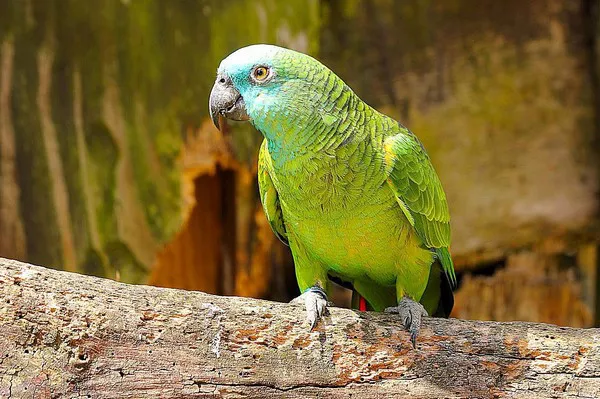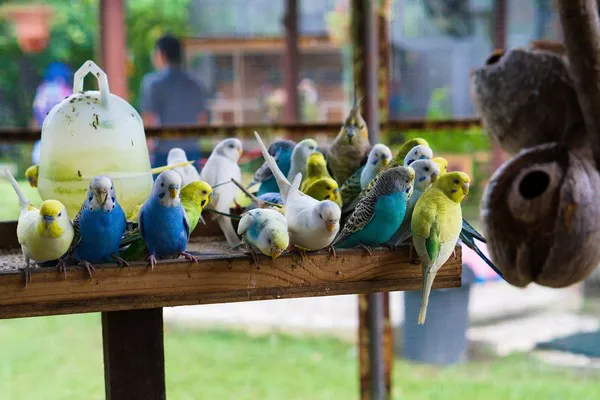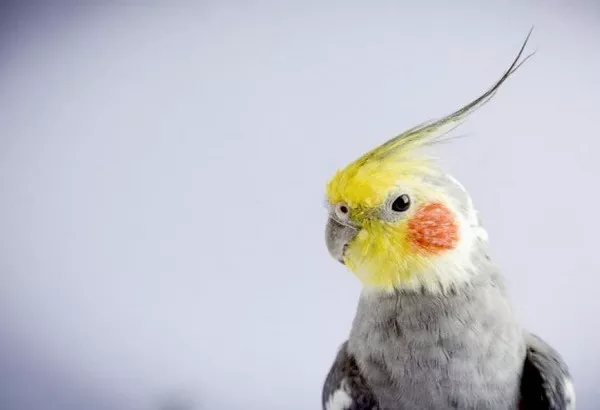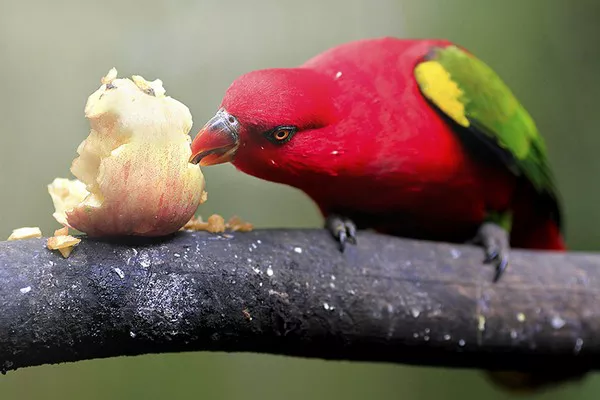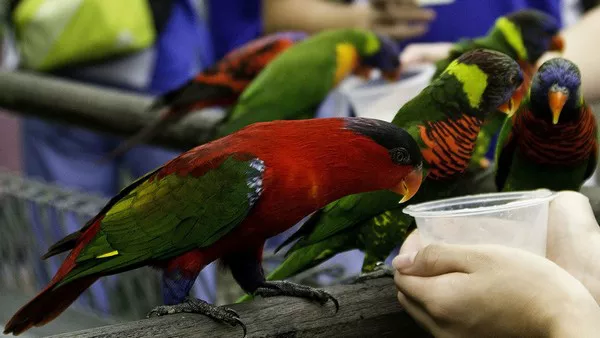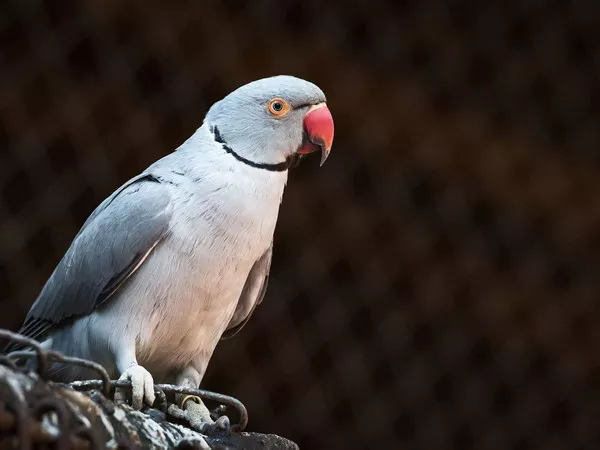Sun Conures are vibrant, affectionate parrots known for their playful personalities and beautiful colors. As pet owners consider adding these lively birds to their homes, a common question arises: Do Sun Conures get along with other birds? This article will explore the social behavior of Sun Conures, their compatibility with other bird species, and tips for successful multi-bird households.
Sun Conures, or Aratinga solstitialis, are small to medium-sized parrots native to South America. They are known for their bright yellow and orange plumage, with green accents on their wings and tail. These birds are social, intelligent, and highly energetic, making them popular pets.
Physical Characteristics
Adult Sun Conures typically weigh between 100 and 130 grams and measure about 12 to 14 inches in length. Their distinctive coloration helps them stand out. In addition to their bright feathers, they have strong, curved beaks that allow them to crack seeds and nuts.
Temperament
Sun Conures are known for their playful and affectionate nature. They are often described as clowns due to their playful antics. These birds enjoy interacting with their human companions and can develop strong bonds. However, they are also known for being loud, which can be a consideration for potential owners.
Social Behavior of Sun Conures
Natural Habitat
In the wild, Sun Conures are social birds that live in flocks. They thrive in environments where they can interact with other birds. This social behavior is essential for their mental health and well-being.
Interaction with Humans
Sun Conures are known for their friendly demeanor towards humans. They often seek attention and love to be involved in daily activities. Their playful nature makes them entertaining companions. However, this need for social interaction means they can become lonely or bored if left alone for too long.
Playful and Mischievous
These birds are playful and can be quite mischievous. They enjoy toys, puzzles, and games that stimulate their minds. This playful behavior is a significant aspect of their personality and can influence how they interact with other birds.
Compatibility with Other Birds
General Considerations
When considering whether Sun Conures can live harmoniously with other bird species, several factors come into play:
Species Differences: Different bird species have varying social structures, communication styles, and needs. Understanding these differences is crucial.
Temperament: The personality of each bird is essential. Some birds are more social and adaptable than others.
Space and Environment: Adequate space and a suitable environment can influence how well different birds get along.
Common Bird Species in Multi-Bird Households
Sun Conures can potentially get along with several other bird species. However, success depends on the individual birds and their socialization. Here are a few common species that may coexist with Sun Conures:
1. Other Conures
Other conure species, such as Green-cheeked Conures or Nanday Conures, often get along well with Sun Conures. They share similar social behaviors and communication styles, making interactions easier.
2. Parakeets
Budgerigars, or budgies, can also live harmoniously with Sun Conures. Budgies are generally friendly and adaptable. However, due to their smaller size, supervision is necessary to ensure that the Sun Conure does not inadvertently harm the budgies during play.
3. Cockatiels
Cockatiels are social birds that can get along with Sun Conures. They have a gentle temperament and can be playful companions. Introducing them gradually can lead to a successful pairing.
4. Lovebirds
Lovebirds are also social and can sometimes coexist with Sun Conures. However, they have their own strong personalities and may need supervision during interactions.
Species That May Not Get Along
While some species can coexist with Sun Conures, others may not. Here are a few species that might struggle in a multi-bird household:
1. Larger Parrots
Larger parrot species, such as Macaws or Amazons, may not be a good match. Their size and different social structures can lead to aggression or fear. Sun Conures may be too small to safely interact with larger parrots.
2. More Aggressive Species
Certain bird species, like some types of cockatoos, can be more aggressive. They may not tolerate the playful antics of a Sun Conure, leading to potential conflicts.
Individual Temperament Matters
It’s essential to remember that individual temperament plays a significant role in how well birds get along. A friendly, social Sun Conure may thrive in a multi-bird household, while a more territorial or aggressive individual may struggle.
Tips for Introducing Sun Conures to Other Birds
Successfully introducing Sun Conures to other birds requires patience and careful planning. Here are some tips to ensure a smooth introduction:
1. Gradual Introduction
Start by keeping the birds in separate cages but in the same room. This allows them to become familiar with each other’s presence without direct interaction. Monitor their reactions and body language.
2. Supervised Interactions
Once the birds seem comfortable, allow supervised interactions. Use a neutral space to avoid territorial behavior. Keep the sessions short initially and gradually increase their duration.
3. Observe Body Language
Watch for signs of stress or aggression in both birds. Signs include raised feathers, aggressive posturing, or vocalizations. If you notice these behaviors, separate the birds and try again later.
4. Provide Escape Routes
Ensure each bird has a safe space to retreat to if they feel threatened. This helps reduce stress during interactions and allows each bird to feel secure.
5. Offer Equal Attention
Make sure to provide attention to all birds involved. This prevents jealousy and helps create a balanced environment.
6. Separate Cages
If the birds seem to get along, consider housing them in separate cages placed close together. This allows them to interact while having their own space.
Creating a Suitable Environment
Space Requirements
Birds need adequate space to thrive. For a multi-bird household, ensure there is enough room for each bird to have its own territory. This helps reduce territorial disputes.
Enrichment and Toys
Provide plenty of toys and enrichment activities for all birds. This keeps them entertained and reduces boredom, which can lead to unwanted behaviors.
Appropriate Diet
Different bird species have different dietary needs. Ensure that all birds receive the appropriate diet to stay healthy. Consult an avian veterinarian for guidance.
Signs of Stress in Birds
Monitoring the behavior of all birds is essential. Here are some signs of stress to look for:
Excessive Screaming: While Sun Conures are naturally vocal, excessive screaming can indicate stress or discomfort.
Feather Plucking: This can be a sign of anxiety or boredom.
Aggression: Any signs of aggression towards other birds, such as biting or lunging, should be addressed immediately.
Hiding: If a bird is hiding frequently, it may indicate stress or discomfort.
When to Seek Professional Help
If you notice persistent issues with aggression or stress, it may be time to seek professional help. An avian veterinarian or a bird behaviorist can provide guidance on managing multi-bird households.
Conclusion
Sun Conures can get along with other birds, but their compatibility largely depends on the individual personalities of the birds involved. While they often thrive in multi-bird households with similar species, it is crucial to consider the specific needs and behaviors of each bird.
By providing a suitable environment, gradual introductions, and monitoring interactions, you can create a harmonious living situation for Sun Conures and their feathered companions. Remember, the key to a successful multi-bird household lies in understanding and respecting each bird’s unique personality. With patience and care, you can enjoy the vibrant companionship of Sun Conures alongside other birds.
Related Topics:

